10 Songs With Tasteful Handclaps
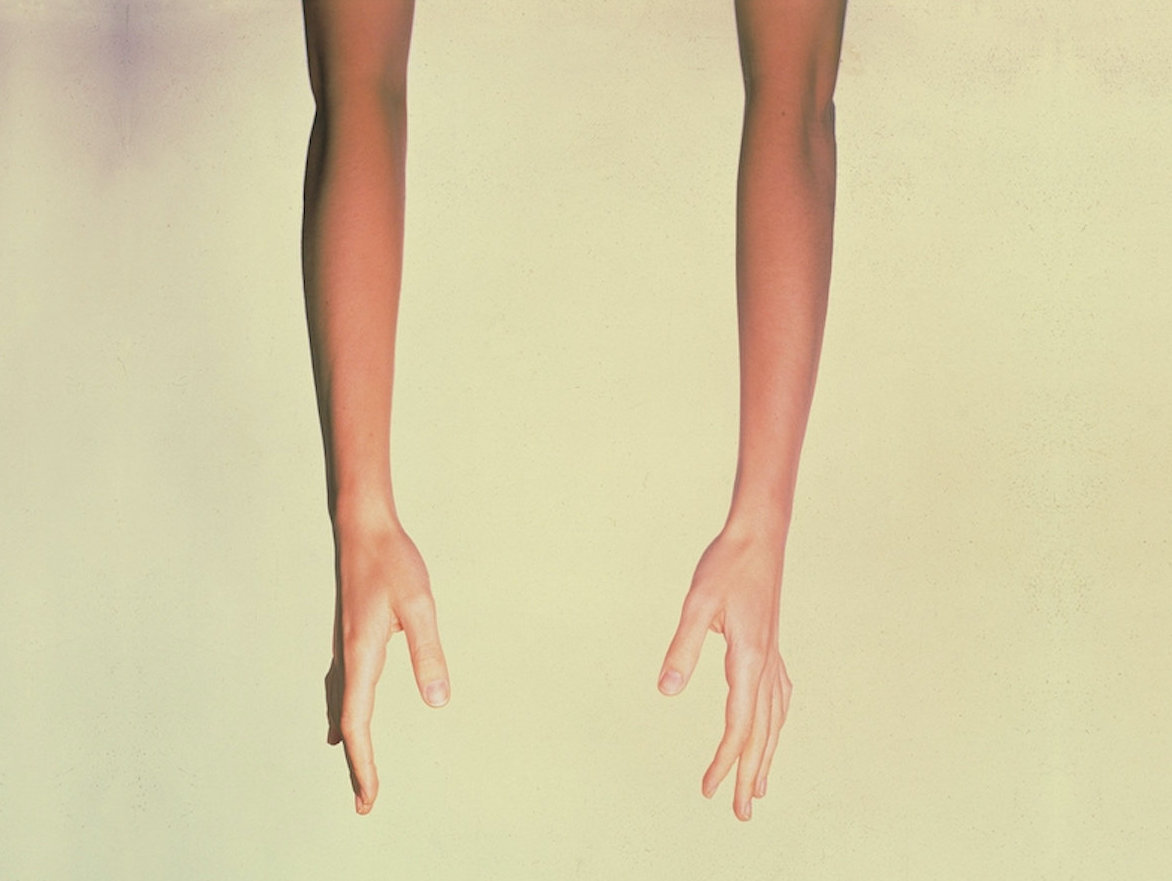
Next time you’re ever at an event where people will be applauding, take a second to look around. Whether it’s a concert, sporting event, or even your co-worker’s open-mic comedy slot, check out the crowd when it comes time to clap. It’s kind of weird; a group of humans congregating for the same reason, conditioned to smack their percussive extremities together in collective appraisal of a performance. Come to think of it, clapping is fucking bizarre.
When it comes to putting our nature drums to use in songs, it can be tricky to gracefully use handclaps without falling into cliché. The mere simplicity of the “instrument” is an obstacle in itself, considering the ease in which a standard clap is executed. Essentially, every clap counts. Compositional placement, timing, and total self-assuredness are essentials for a good old-fashioned handclap. When these qualities merge, a simple clap can take on a life of its own.
Today, we’ve assembled a handpicked catalog of the tastiest of tasteful handclaps for your listening convenience. Each artist on this list trades tack for tact by elegantly applying claps that not only are well placed, but may also become a song’s focal point. So pause that ten-hour playlist of the Friends theme song and keep a safe distance from clap-activated lights. And please, save your applause until the end.
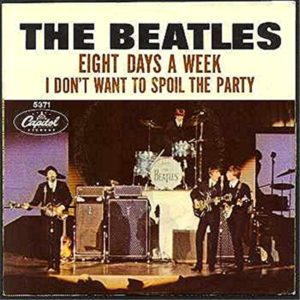 The Beatles – “Eight Days a Week”
The Beatles – “Eight Days a Week”
(1965; Apple)
John Lennon never liked “Eight Days A Week.” Even in the final months of his life he told Playboy it was “lousy.” A Paul McCartney creation mainly, the cheerful ditty was the total opposite of the Dylan-inspired tunes like “I’m A Loser” that Lennon was writing around the same time, so it’s understandable that he never took to the track. And yet despite Lennon’s opinion on the matter, I’ve never been able to hate “Eight Days A Week.” In fact I love it, from the fade-in that starts the song to the last chiming chord that ends it. It’s the handclaps in the chorus though that really seals the deal for me. They’re infectious, and like “Eight Days A Week” itself, pure joy. – Adam Ellsworth
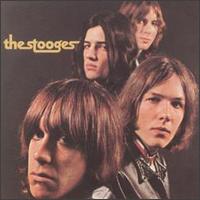 The Stooges – “No Fun”
The Stooges – “No Fun”
from The Stooges (1969; Elektra)
Well, the title of this song just isn’t accurate. “No Fun” is, in fact, barrels of fun. It’s boatloads of it. It’s a damn battleship full of fun, contrary to Iggy Pop’s angst-ridden lament. That has a lot to do with its fuzzy power-chord riffs, Pop himself, and the persistent backing of handclaps that carry this proto-punk classic to conclusion. “No Fun” is defined by its claps, and almost overwhelmed by them, which at least momentarily calls into question just how tasteful they really are in context. It takes a few minutes to sort that out, but by the time Iggy starts to wail and moan, and a fiery solo breaks out atop the power chord groove, “No Fun” goes from being the very picture of cool into something unhinged and unpredictable. Those claps, however, are stalwart—they’re stoic and steady in the face of what seems like chaos. Still, you have to imagine whoever’s doing them will have some tender palms by recording’s end. – Jeff Terich
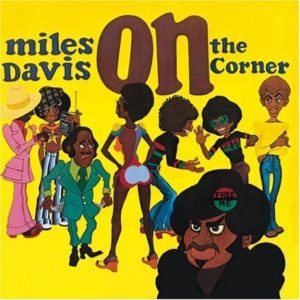 Miles Davis – “Black Satin”
Miles Davis – “Black Satin”
from On the Corner (1972; Columbia)
The funny thing about including “Black Satin” on a list of songs with supposedly tasteful handclaps is that the album it comes from, 1972’s On the Corner, was a pretty controversial album when it was released. It drew the ire of some jazz purists who didn’t particularly find much to celebrate on the album of trance-like rhythmic repetitions. (Though Rolling Stone liked it, for the record.) History’s redeemed it—Davis was ahead of his time—and that goes for how he used handclaps as well. “Black Satin” is a psychedelic funk number that has a groove all its own, but is aided by polyrhythmic claps that take on an improvisational nature, becoming more unpredictable over the course of the song, but no less crucial to the song’s heady grooves. This is clapping on a whole different level. – Jeff Terich
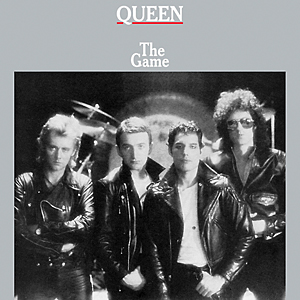 Queen – “Crazy Little Thing Called Love”
Queen – “Crazy Little Thing Called Love”
from The Game (1980; Elektra)
Musically speaking, there’s not much to “Crazy Little Thing Called Love.” There couldn’t be, as Queen frontman Freddie Mercury wrote the rockabilly pastiche in about ten minutes on the guitar, an instrument he didn’t really play. For the first two minutes or so, the song moves along briskly while the same basic as can be chords repeat themselves. Then, when it doesn’t seem like things could be any simpler, the guitar, bass, and drums drop out completely and the handclaps take over, stripping the song down to its bones. Metronome steady, they cool the song down right before the band heats it back up and brings it home, allowing the simple song to linger just a little bit longer than it should have any right to. – Adam Ellsworth
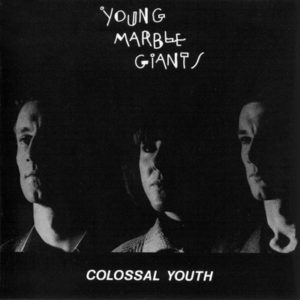 Young Marble Giants – “Salad Days”
Young Marble Giants – “Salad Days”
from Colossal Youth (1980; Rough Trade)
Welsh quartet Young Marble Giants crafted straightforward, minimalistic, and thoroughly unforgettable post-punk for their lone 1980 album, Colossal Youth. Originally released on London’s Rough Trade Records, a label home to a generally more aggressive punk lineup, the album is a glaring contrast to the stylistic direction of the underground scene at the time. Colossal Youth is tightly composed, unencumbered by distortion or feedback, and clearly executed in the name of clarity. Lyrically, the album existentially twists on the title track, narratively turns on “Eating Noddemix,” and finds nostalgic peace on “Salad Days,” our choice cut. The song is split by four handclaps, the only percussive “instrument” used on the track, before Alison Statton’s wavering vocals utter three short lines. These lines reflect the nature of the music; effortless, innocent, and pure. The track never ventures beyond the boundaries of its short two minutes, resulting in an uncomplicated vision of nostalgia and pure bliss. – Patrick Pilch
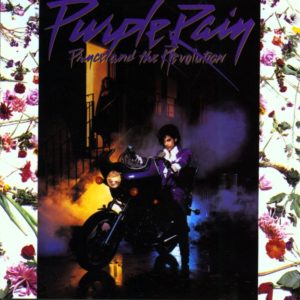 Prince and The Revolution – “I Would Die 4 U”
Prince and The Revolution – “I Would Die 4 U”
from Purple Rain (1984; Warner Bros.)
My parents were watching Purple Rain on VH1 Classic about ten years ago. I clearly remember being called into the den multiple times to watch, but I guess 12-year-old me had better things to do. It wasn’t until the final moments of the movie when “I Would Die 4 U” would seize my ears. The song was downright infectious, and felt like the only thing I could hear in that very moment. Propelled by what seemed to be some kind of sonic hypnosis, I practically levitated into the den, went up to the TV, and sat down. The track makes use of a delightfully ’80s-tinged handclap, exchanging beat emphases with a sharpened snare throughout the song’s length, both of which equally contribute to the incredibly danceable highlight from Prince’s pop masterpiece. Lyrically pensive and criminally economical, Purple Rain’s lone sub-three-minute single is truly otherworldly. I looked up at my Dad on the couch. “What song is this?” I said. “It’s awesome.” Without taking his eyes off the screen, he replied, “That’s because it’s the best song of all time.” – Patrick Pilch
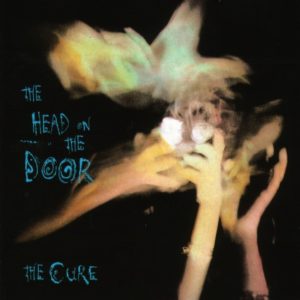 The Cure – “Close to Me”
The Cure – “Close to Me”
from The Head on the Door (1985; Fiction/Elektra)
The Cure’s songs are rarely defined by percussion so much as they are by guitar tone, funereal synth, the occasional sax solo or Robert Smith’s vocal approach (low-key moan vs. erratic tics, for instance). Yet when drummer Boris Williams joined the band, their sound grew considerably bigger, thanks to his ability to cover more surface area on his kit—a marked difference from that of previous drummer Lol Tolhurst. One exception on The Head on the Door, Williams’ first with the band, is “Close to Me,” a hit single with no gloomy goth guitar and a fairly minimal beat. What it lacks in tom-driven bombast, however, it makes up for in delightfully low-key, yet crucial handclaps. The claps arguably carry the beat even more than the proper drums in the track, adding an extra layer of ultraviolet to an already bright moment of pop perfection—this coming from a band who once opened a song with the line, “It doesn’t matter if we all die.” – Jeff Terich
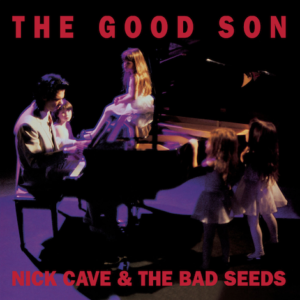 Nick Cave and the Bad Seeds – “The Weeping Song”
Nick Cave and the Bad Seeds – “The Weeping Song”
from The Good Son (1990; Mute)
There are myriad ways to employ claps in a song, be it as a vehicle for the rhythm or simply as an accent, or in certain cases—primarily the ones we’re not highlighting here (“Jack and Diane,” “Private Eyes”) they serve more like an exclamation point. That’s essentially the role that the claps take on in Nick Cave and the Bad Seeds’ “The Weeping Song,” which in itself is a darkly low-key dirge. Essentially a folk song turned to gothic cabaret, “The Weeping Song” provides a kind of call and response between father and son that becomes carried over to the chorus on a bed of rapid-fire hand claps, the likes of which sound almost like castanets. That they’re so persistent gives them a different character than the usual rock ‘n’ roll clapping, but they’re elegant and poised, if a little intense. Just like all of Nick Cave’s music.
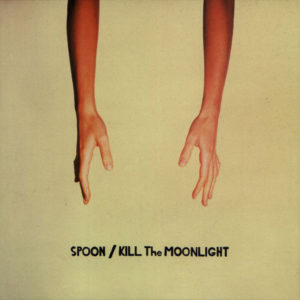 Spoon – “The Way We Get By”
Spoon – “The Way We Get By”
from Kill the Moonlight (2002; Merge)
Spoon has adhered to a less-is-more approach for much of their career. Not that they’ve ever been shy to embrace a bigger arrangement when it suited them, be it in the form of Jon Brion production and a horn section or some dreamy synthesizers. But Spoon is often at their best when sticking to a relatively stripped down approach. Their 2002 album Kill the Moonlight is easily their most minimal recording, and one where it works out beautifully. By the first chorus of highlight “The Way We Get By,” the arrangement consists of only piano chords, bass, vocals and claps. That’s right—no drums until the second chorus, leaving the claps to do the heavy lifting. It’s not such a complicated job, however. There’s so much space in the song that everything is pretty much in perfect balance. You might very well notice that certain elements aren’t there, but they certainly aren’t missing. – Jeff Terich
 The xx – “Heart Skipped A Beat”
The xx – “Heart Skipped A Beat”
from XX (2009; Young Turks)
The highly prestigious, artist-spawning Eliot School in Putney, England was home to some of the most important acts emerging from across the pond, particularly over the ’00s. Now closed, the former creative hotbed is known for previously bearing a wide array of musicians and bands such as the dancefloor dorks of Hot Chip, the particularly elusive Burial, and genre-pushing Four Tet. Two years before its closing, four of the school’s latest pupils would release their impressive and distinctly atmospheric self-titled debut, an album that would be met with widespread critical acclaim. The xx’s spacious soundscapes serve as backdrops among angular, staccato guitar quips and brooding melodies as haunting as the last. Highlight “Heart Skipped a Beat” is one of the album’s most stunning moments, composed with percussive simplicity and muffled vocals sung in a dramatic airiness of yearning and heartbreak. The instrumental break at 1:29 sets off an elegant movement of juxtaposed silence and a momentous drum and handclap riff. What’s impressive here is not only an example of a tasteful handclap, but The xx’s use of silence, as they expertly harness the quiet to their advantage, adding to the track’s musical density and theatrics. – Patrick Pilch

Wait, no “Clapping Music” from Steve Reich?
Head over heels by the go-gos should be here
as well as get the money and run